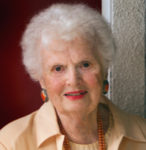
LA JOLLA, California — Every new idea that we come across may have some of the following reactions:
- It’s ridiculous.
- Wow. I love it.
- Interesting. Let’s examine it.
So it is with climate change, vaccinations, or the way we feel about people different from ourselves. What is surprising is that facts have very little to do with changing people’s minds. Beliefs that have an emotional charge cannot be easily dislodged. We like to hold on to something that has been part of our belief system for a long time; change means we must negate what worked for us for many years, to accept that we had been wrong all those years. We tend to accept information that confirms what we believe and discard contradictory information even when presented as facts. We attach labels to genders, races, and cultures.
New information can be overwhelming, too time consuming, too complicated to sort through, so we rely on experts: someone with an M.D. or Ph.D. or with some expertise in the field. The odd thing is that we also believe in non-experts such as prominent media personalities, movie stars or football players, whether they tout a new pill or refrigerator.
Because belonging to a group is a primal evolutionary need, we tend to espouse our tribe’s belief system; not doing so threatens ostracism, which is one of the worst punishments. The whistle blower, the outlier, and the non-conformist have no support and have to fend for themselves. We tend to dislike not only the opposite view, but the bearer of that view.
There is also a personality factor. We are born with genes that make some of us more distrustful, more rigid, while others are more open to new information and new adventures. Fear is often involved in facing contradictory feelings; it is fear of the as yet unknown with unknowable consequences.
In the 1970s, I was a dean at NTL (National Training Laboratory) that held seminars in Bethel, Maine. As such, I was leading week-long groups of half white and half non-white participants. We all lived on the premises, which allowed us to not only work together, but have our meals in common and continue discussions after dinner. We had members from Asia, Africa, and the U.S. We started out by confronting our stereotypes of each other; we ended with embracing our common humanity.
For this to work, participants needed to feel secure enough in the group to be vulnerable; in other words, to admit to prejudice and bigotry. We have all been raised by parents who also had their own beliefs and prejudices which have influenced our own way of thinking. It took effort and commitment to re-examine what seemed to be natural, even obvious, from an early age and to explore new ways of seeing the world.
When recounting our various life experiences, what became clear was how similar our reactions were to some difficult circumstances and also how different these reactions could be, whether we were black, white, brown, or yellow. The white participants learned to understand at a gut level what it was like to be surrounded by prejudice and live in fear. The non-white participants learned to understand the white members’ fear of losing power. We did an exercise where each had to talk and express feelings as if they were of another race.
By the end of that experience, we all had a new understanding of the different cultures with the pain of living with racial prejudice. Many cried; I did. I realized that I, too, had unconscious biases that could be faced and dealt with. There may be more than one truth; telling a story from an opposite point of view can help to depolarize our thoughts.
Holding on to long-held, false beliefs is reassuring. It takes courage to open ourselves up enough to understand an alternative point of view. A lot of people don’t have the incentive to do so. There needs to be a concerted effort to address feelings because false beliefs are not rational; they cannot be reached by discussion and facts alone. Asking people to identify what they fear the most when contradicting their beliefs is a step in the right direction. Sometimes it is not a matter of belief, but of convenience or monetary gain. To wit: continuing to use fossil fuels even though it impacts our planet negatively.
I invite my readers to come up with better ideas on how to help reluctant people accept what to us seem to be obvious facts reinforced by scientific study. But then, of course, I believe in science and you won’t be able to change my mind, unless….
© Natasha Josefowitz. This article appeared initially in the La Jolla Village News. You may comment to natasha.josefowitz@sdjewishworld.com